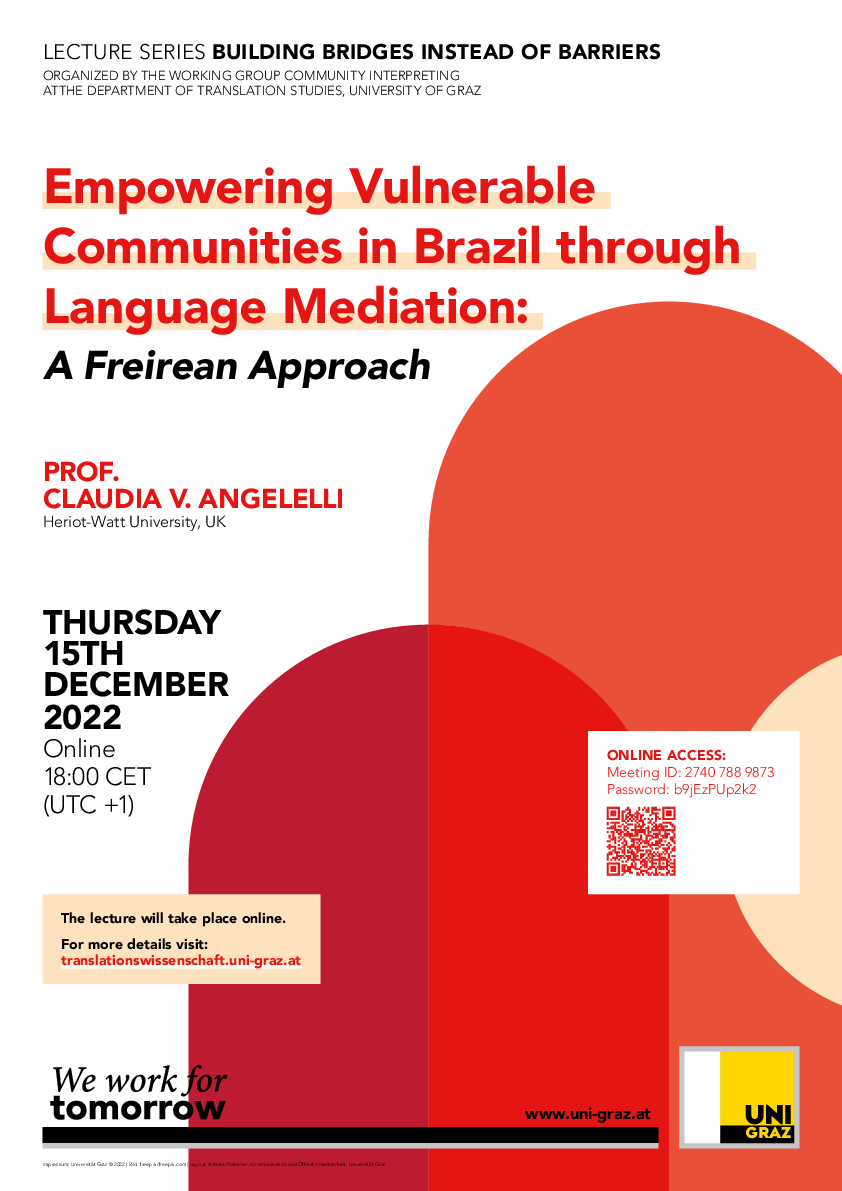https://unigraz.webex.com/unigraz/j.php?MTID=m044a39297eac57d69b9a751012f9b847 (Meeting ID: 2740 788 9873; Password: b9jEzPUp2k2)
Communicating effectively, understanding and being understood, prioritizing essential information, as well as differentiating between reliable and fake news, require cognitive and social skills learnt through socialization and education. While these skills are not equal across social sectors (Freire 1992:71), they are essential. We all depend on them to access, analyse and categorize information to make informed decisions which are particularly important, when living through the COVID-19 pandemic in an impoverished community.
Grounded in Paolo Freire’s philosophy of education and framed by theories from sociolinguistics, access to language and information and family literacy practices (Rogers 2003), we study participants access to information, negotiation of trust, communication and decision-making in relation to COVID-19. Based on the knowledge gained from participatory action research (on site and remotely), we designed a communicative strategy, critical thinking workshops and an educational (serious) game to raise awareness on infodemic.
Based on data from participatory observations, interviews, workshops and game sessions, this presentation offers a context to reflect about the relationship between researchers, community leaders and participants in participatory action research as we focuss on the linguistic resources deployed by the team in Portuguese, English and Spanish to work with 3 vulnerable groups (homeless, Favelas [shanty town] dwellers and garbage pickers) in deprived metropolitan areas in Goiânia, capital of the state of Goiás, Brazil.
*This interdisciplinary project is funded by United Kingdom Research and Innovation AHRC/GCRF.
